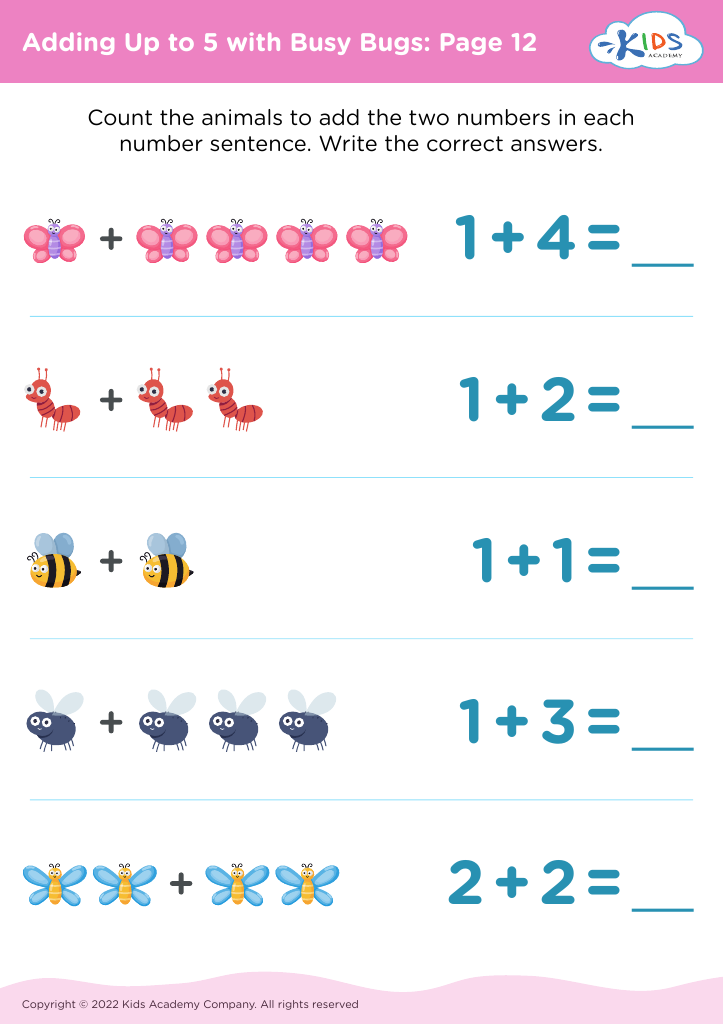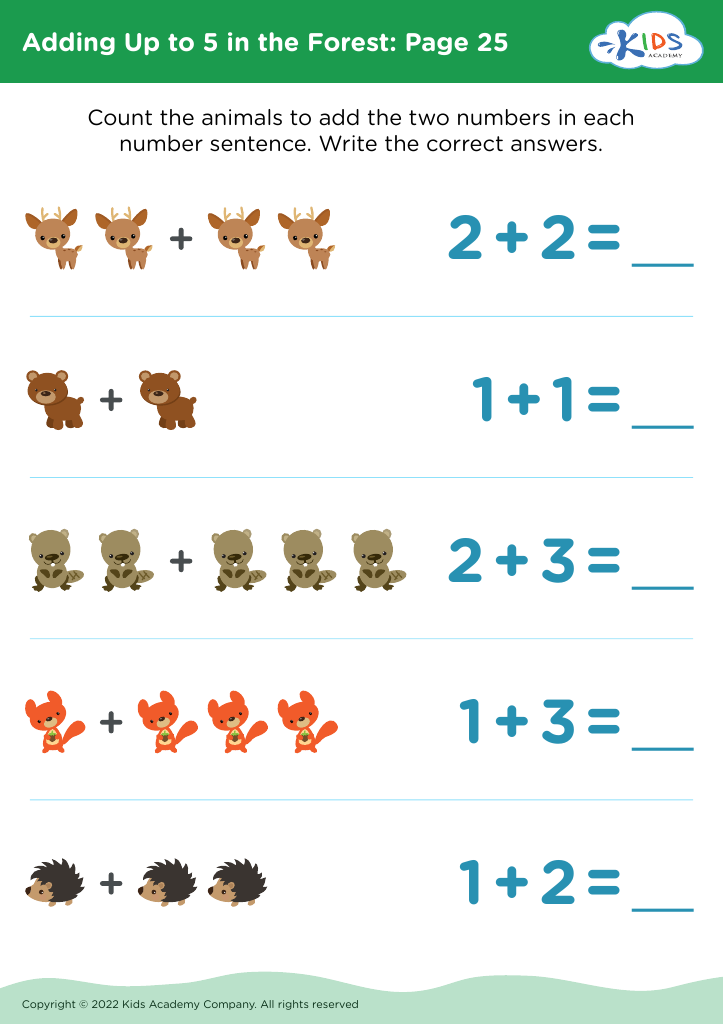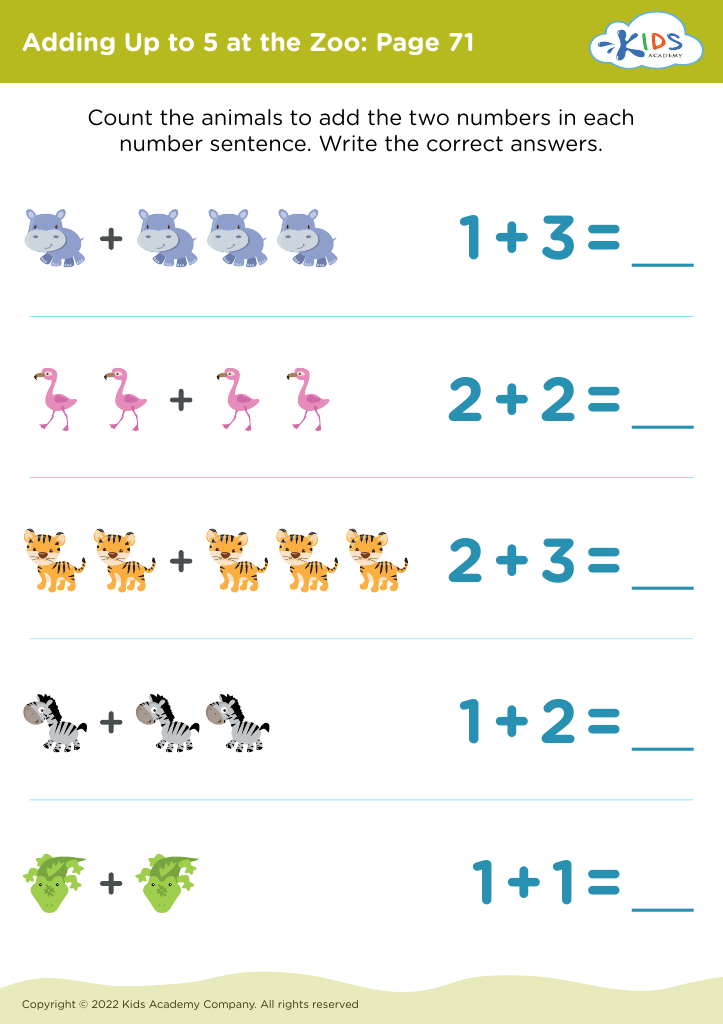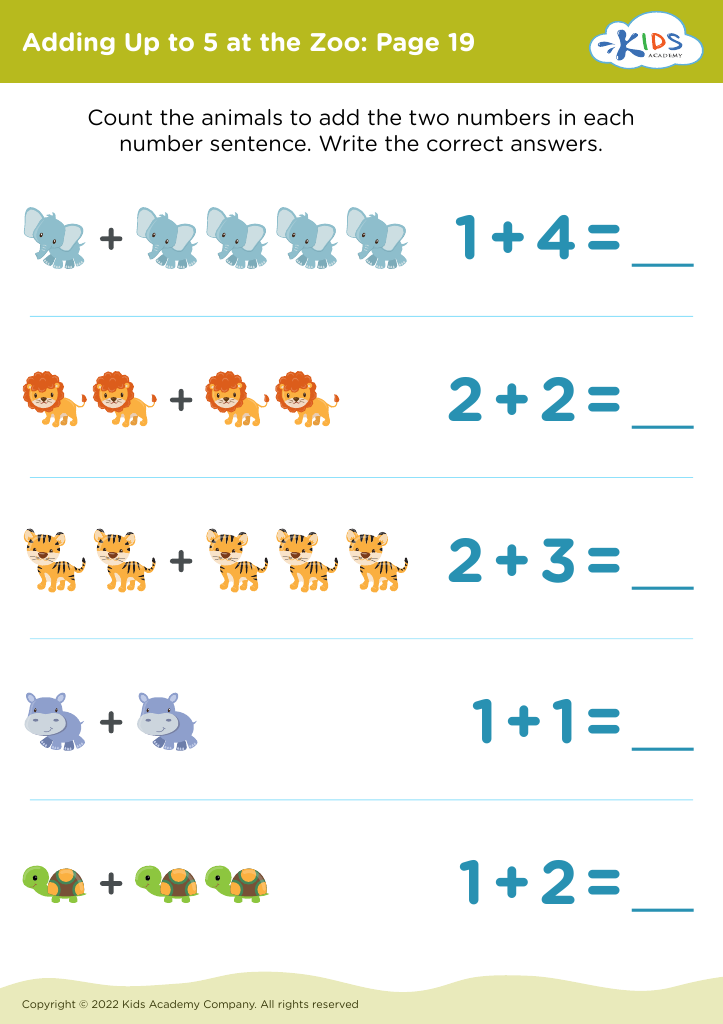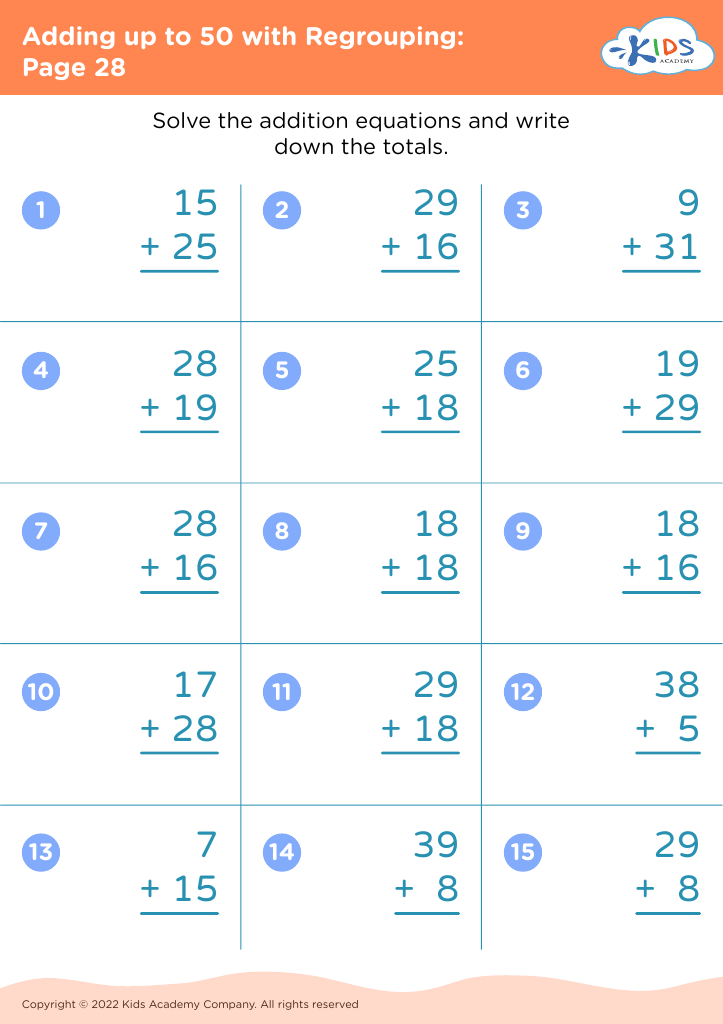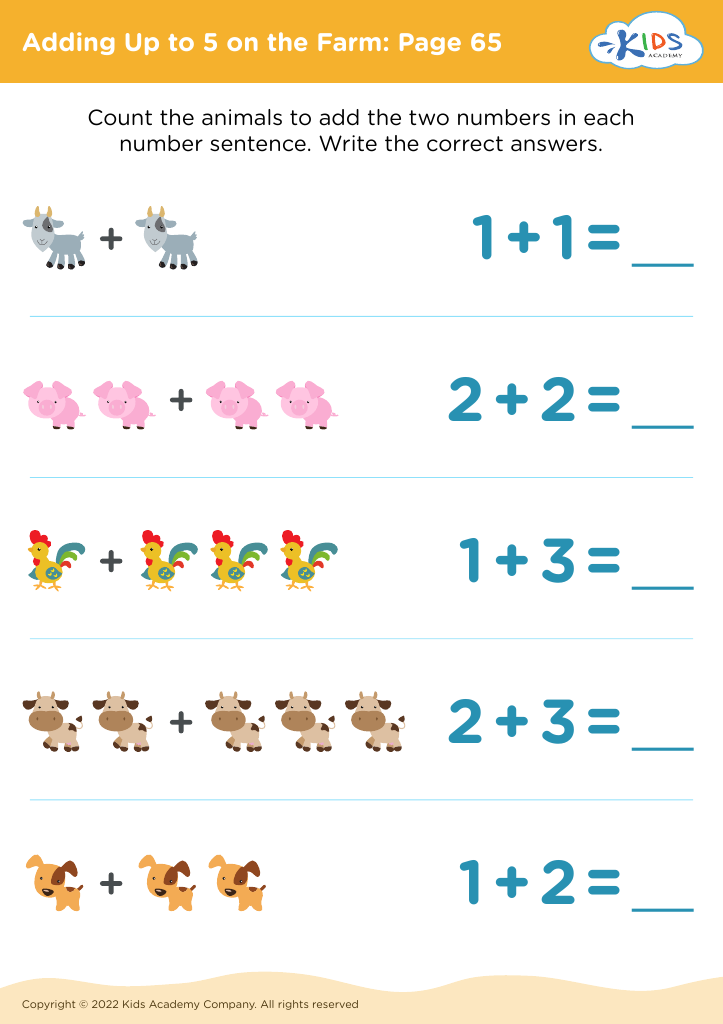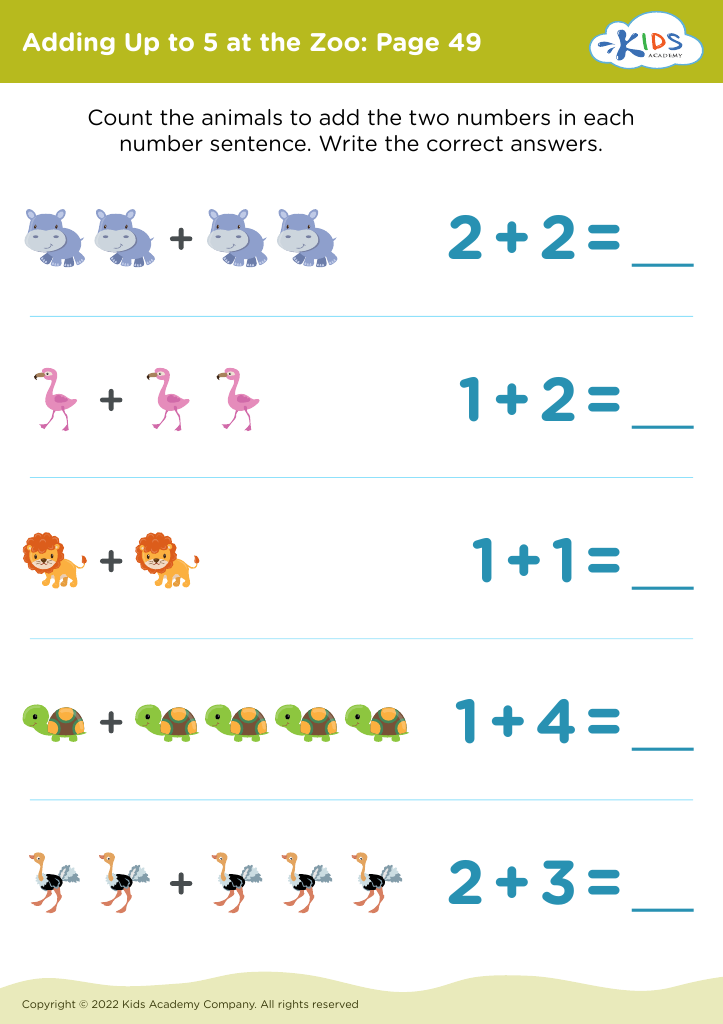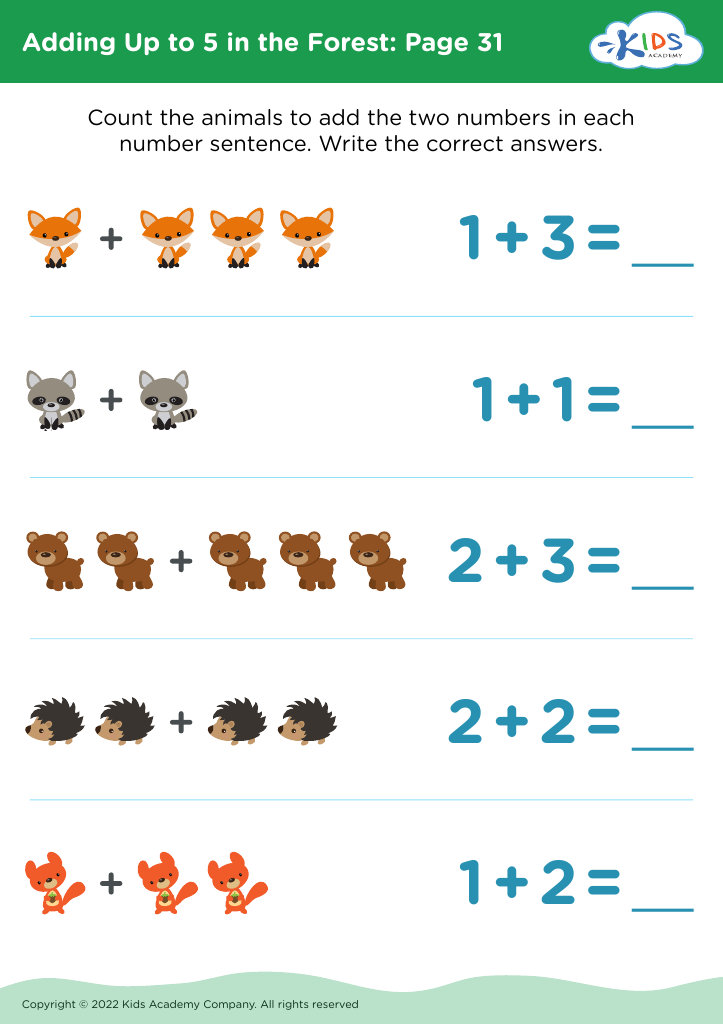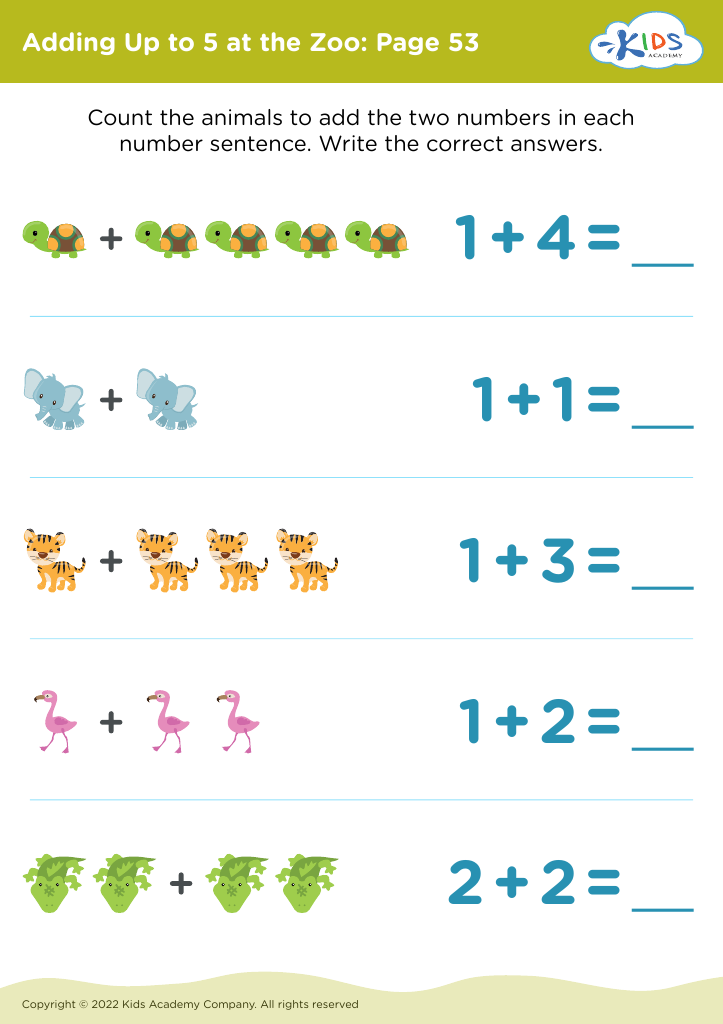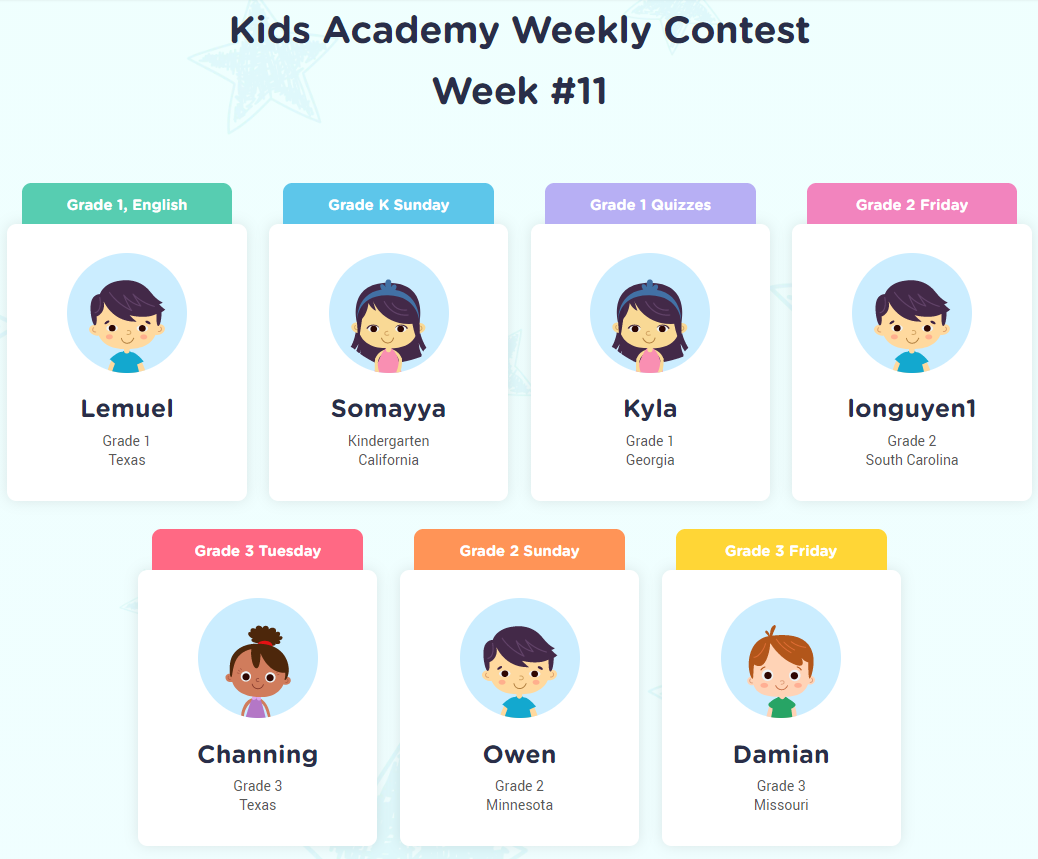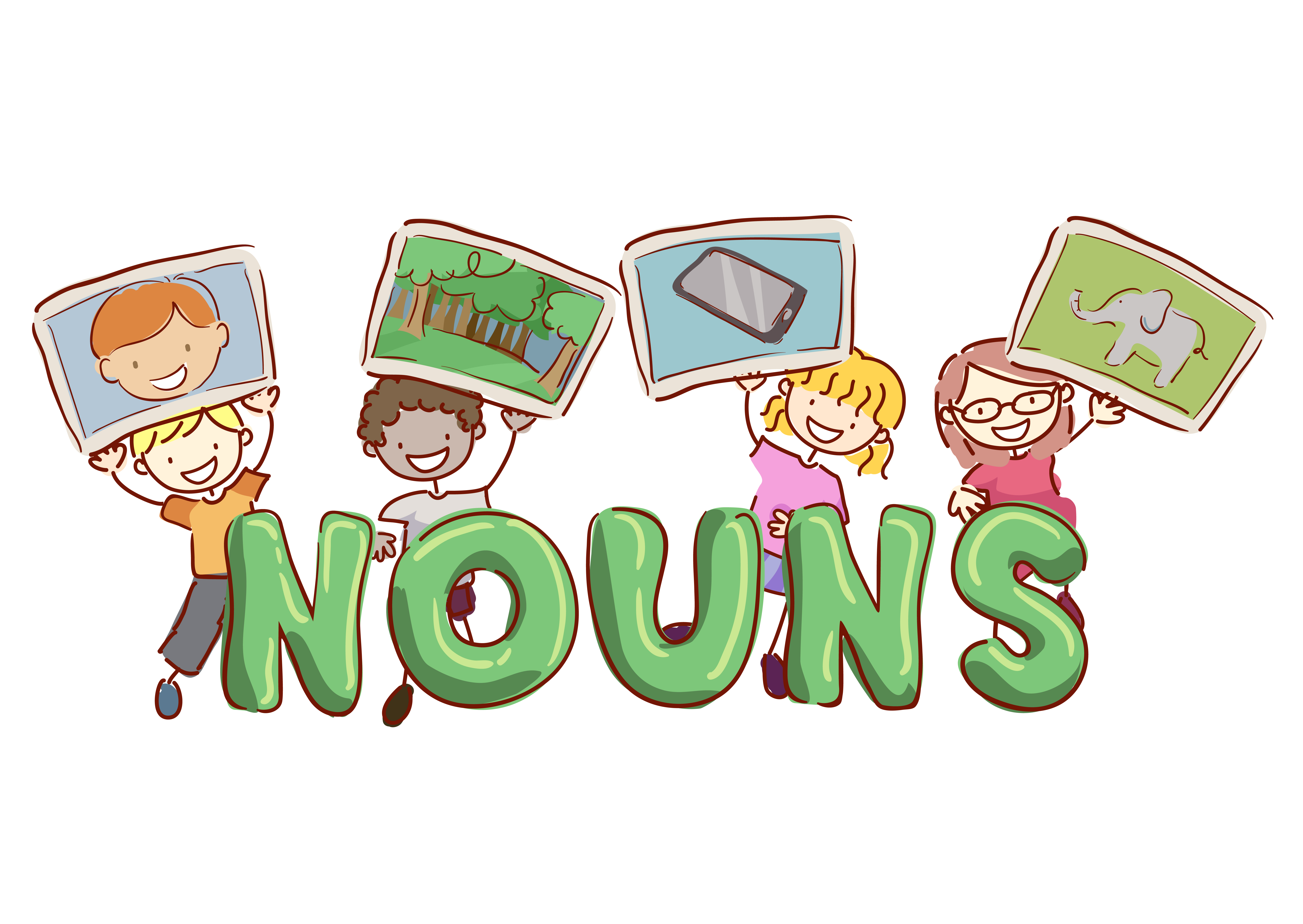Basic arithmetic practice Worksheets for Kids
27 filtered results
-
From - To
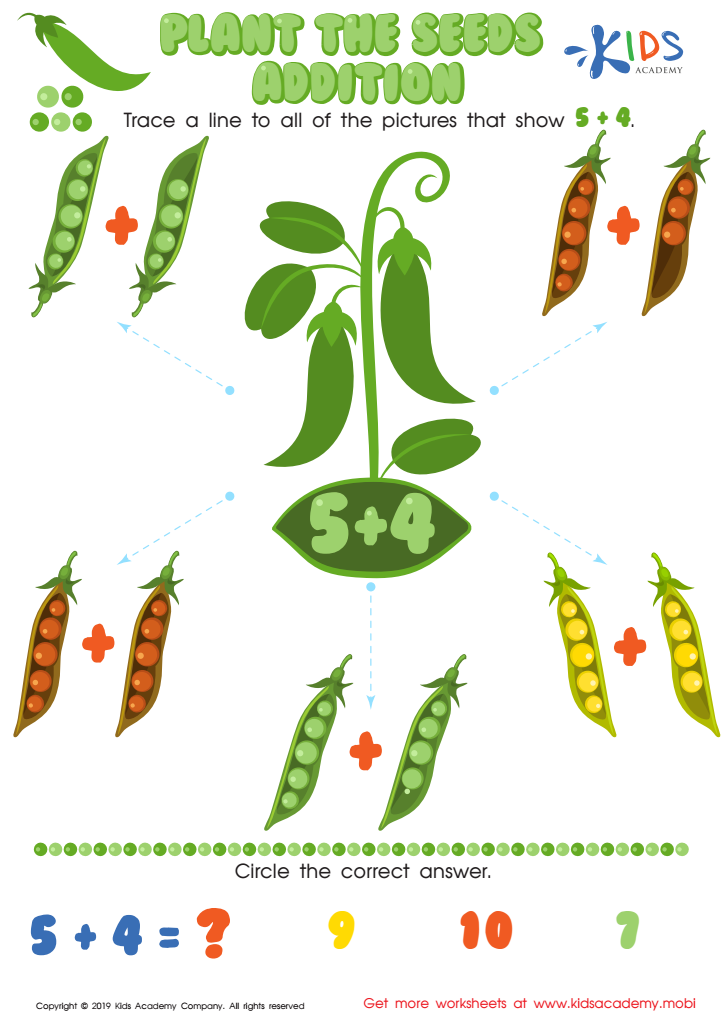

Plant the Seeds Addition Worksheet
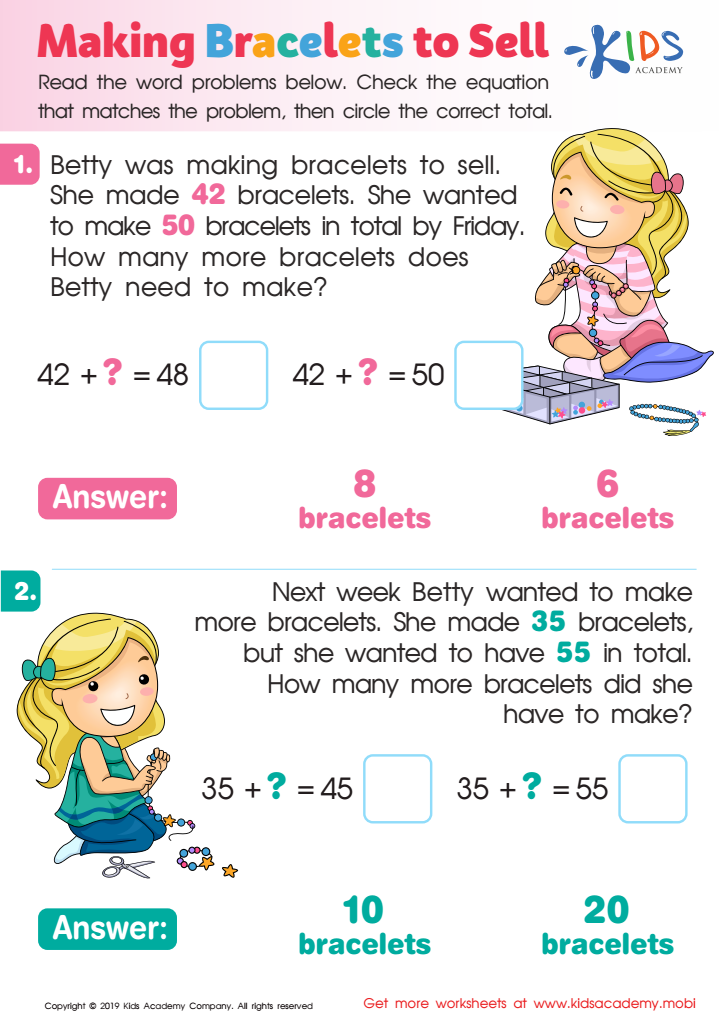

Making Bracelets to Sell Worksheet
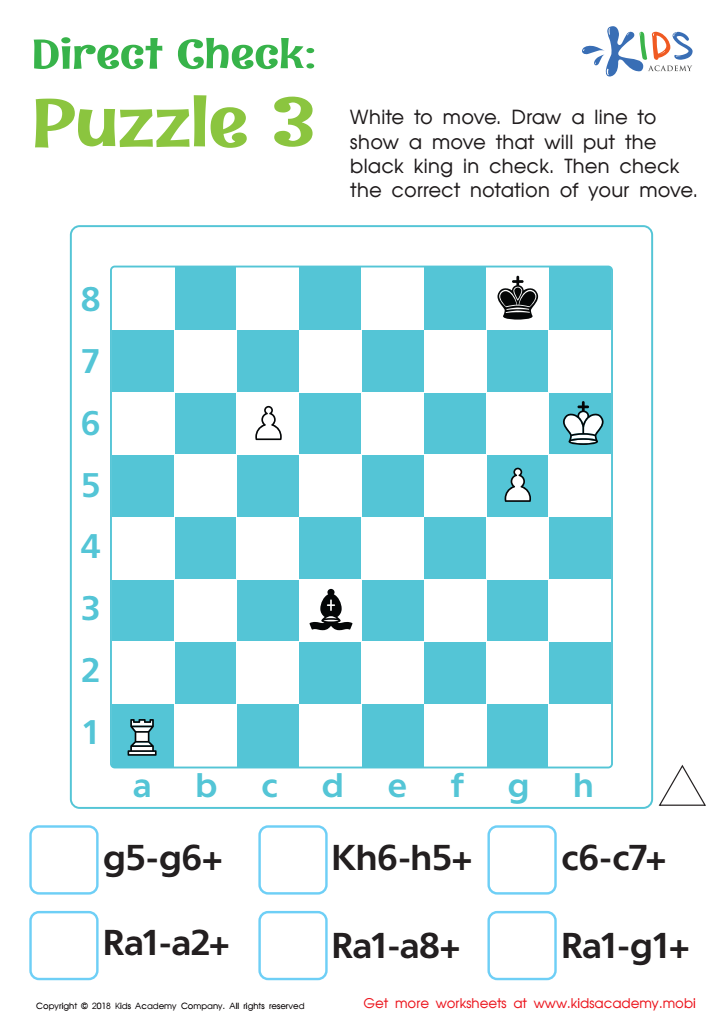

Direct Check: Puzzle 3 Worksheet
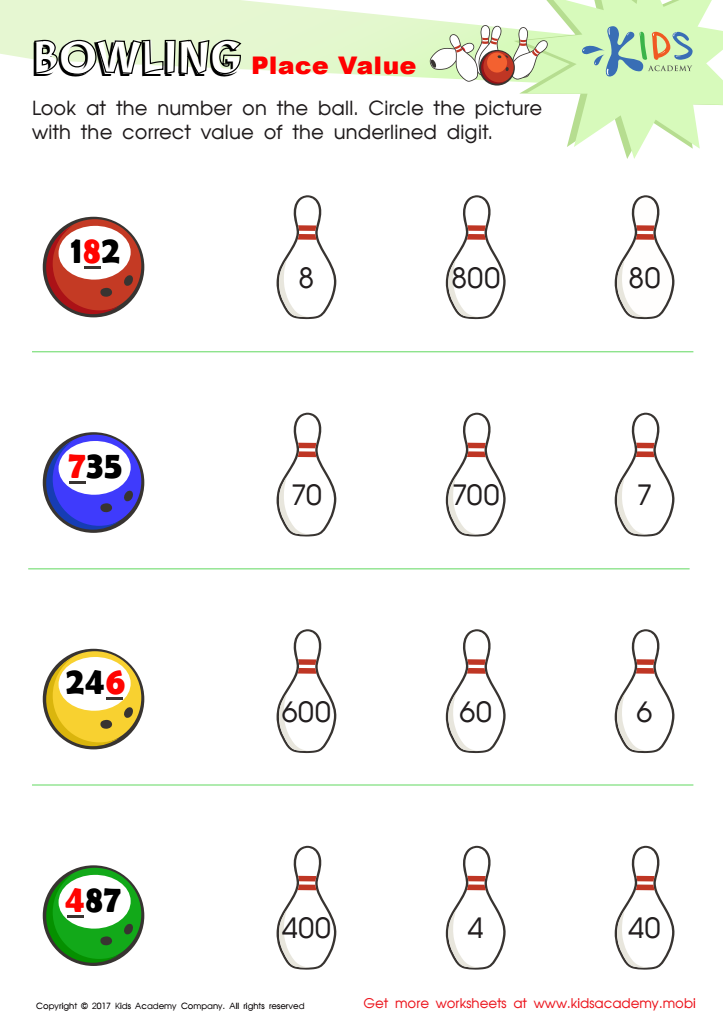

Place Value Worksheet
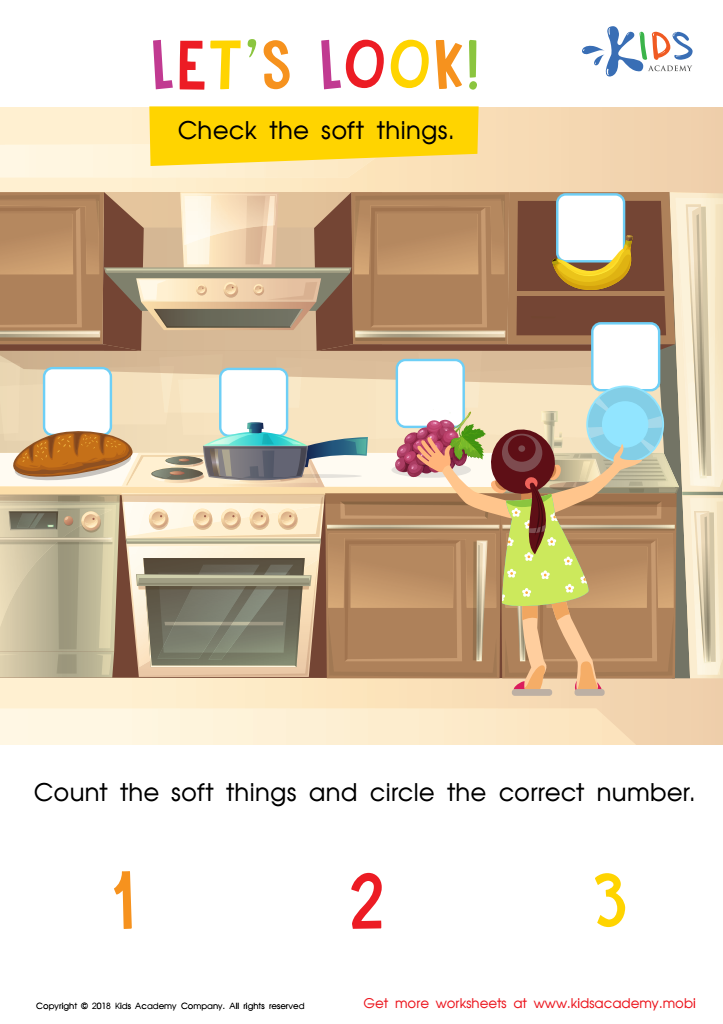

Let's Look! Assessment Worksheet
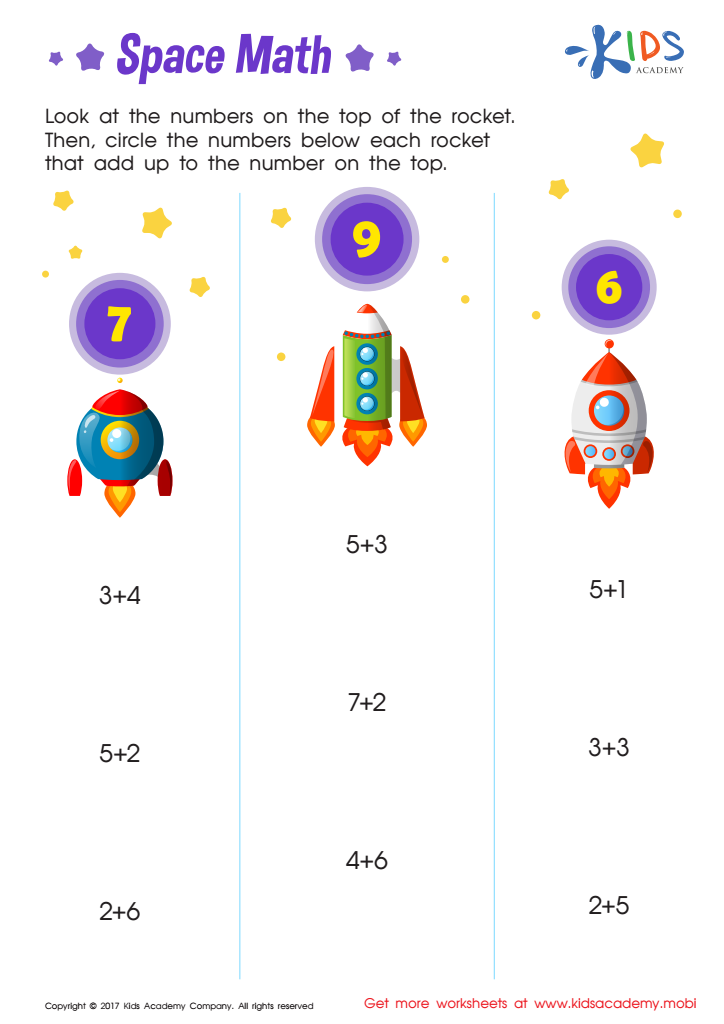

Addition: Space Math Worksheet
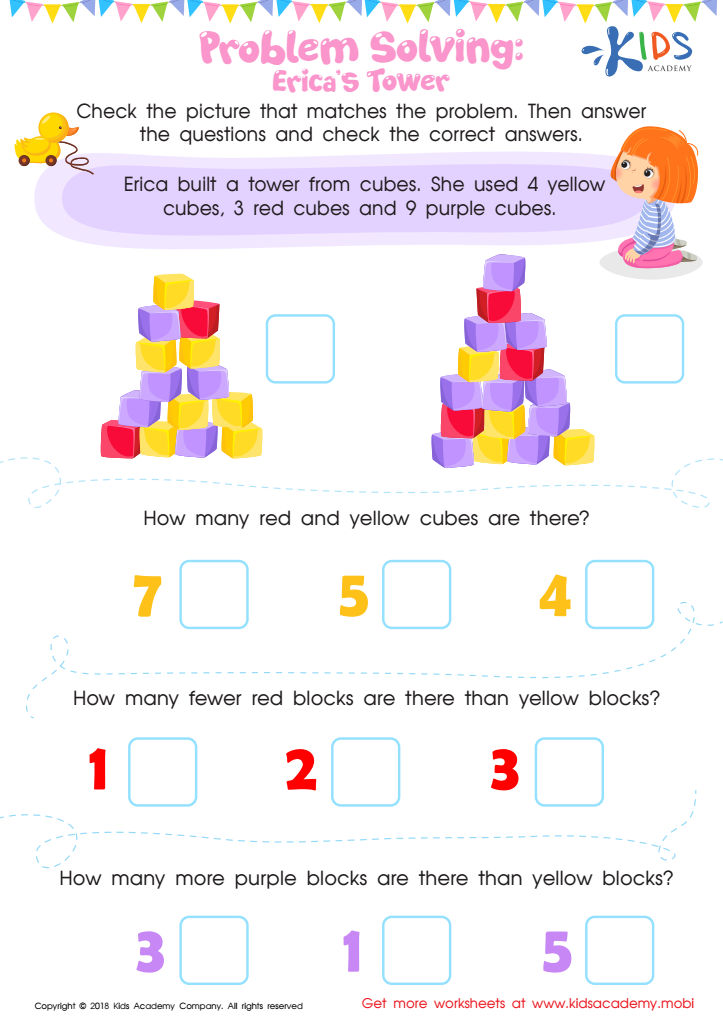

Problem Solving: Erica's Tower Worksheet
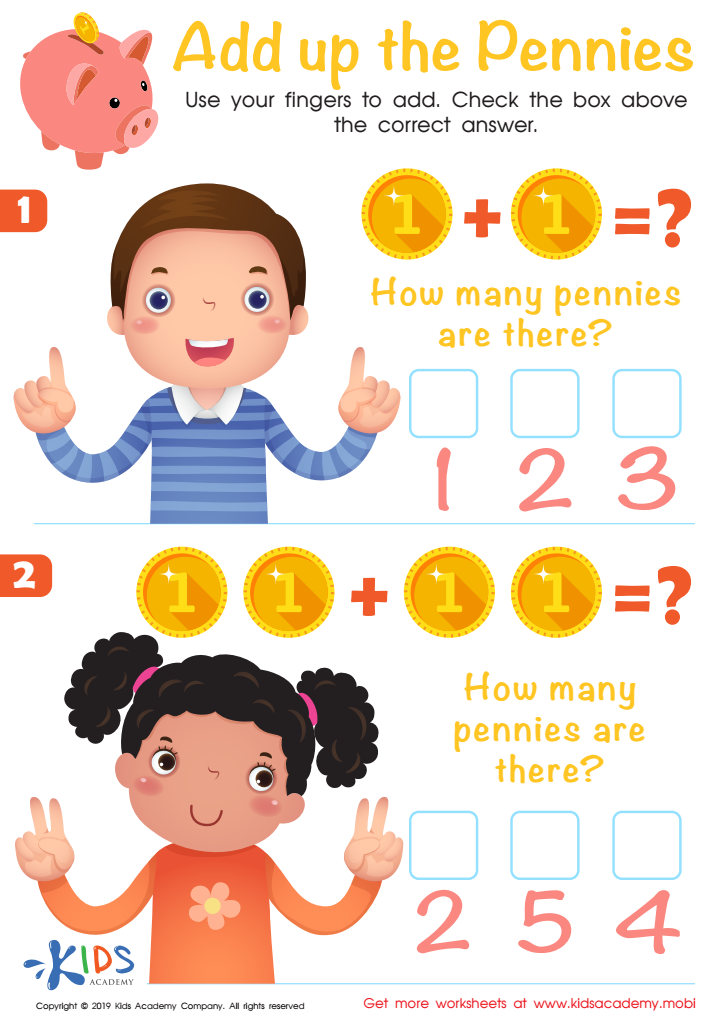

Add up the Pennies Worksheet
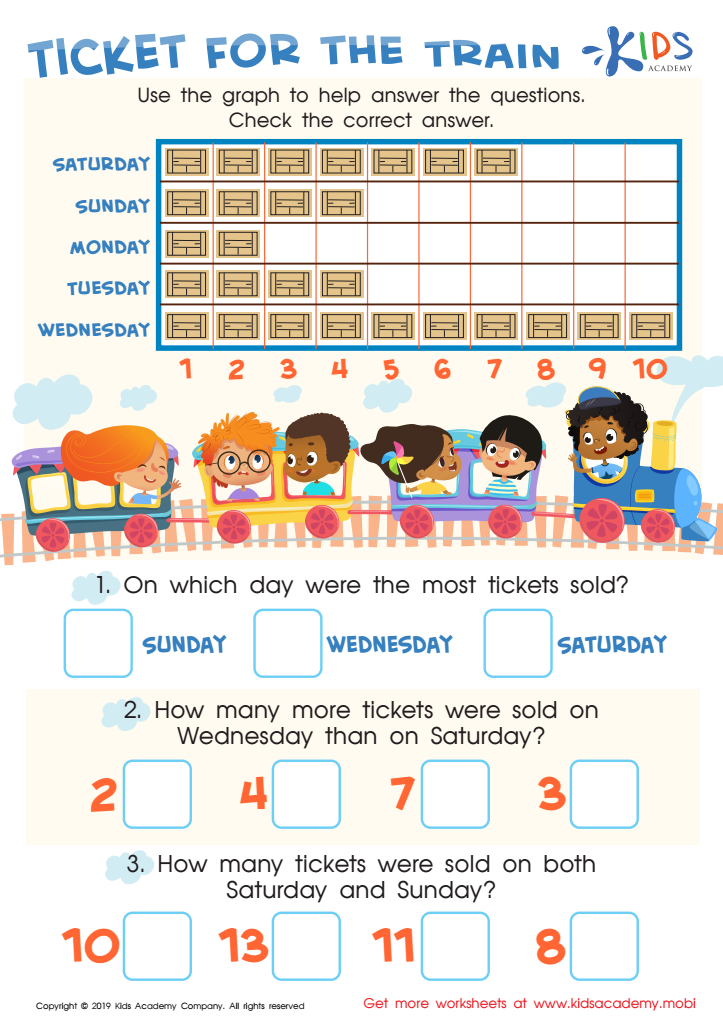

Ticket for the Train Worksheet
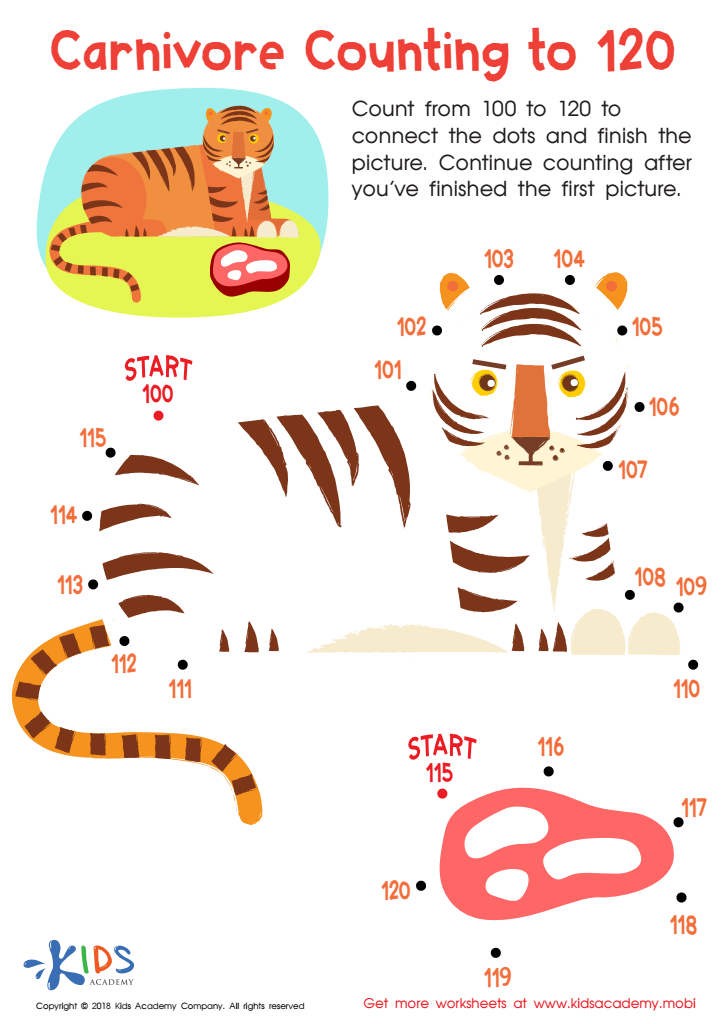

Carnivore Counting to 120 Worksheet
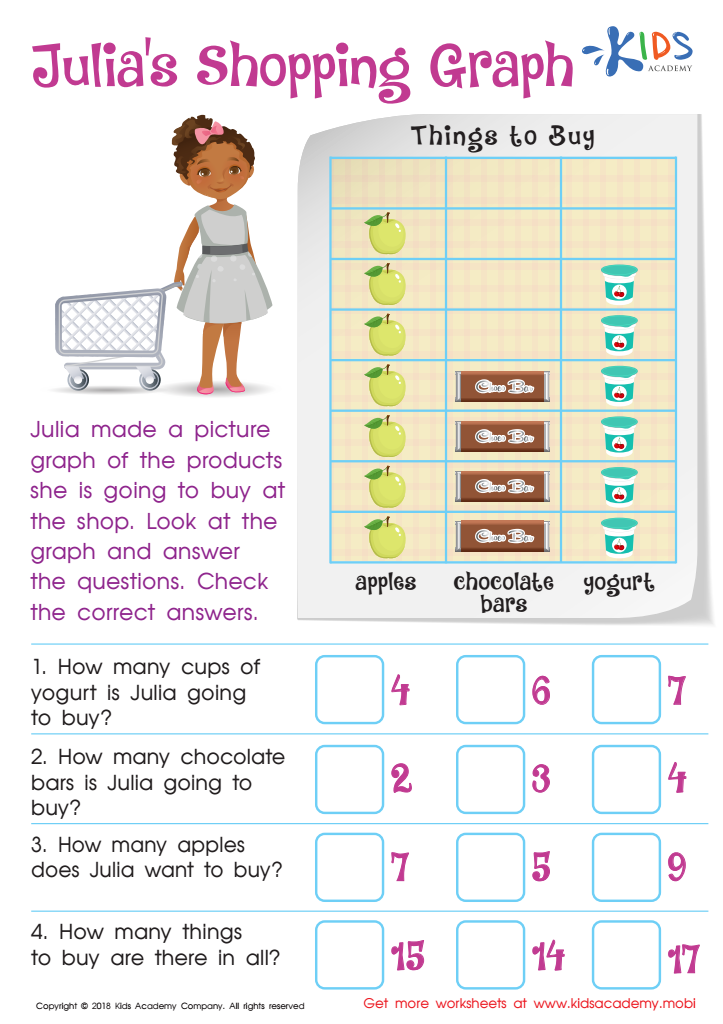

Julia's Shopping Graph Worksheet
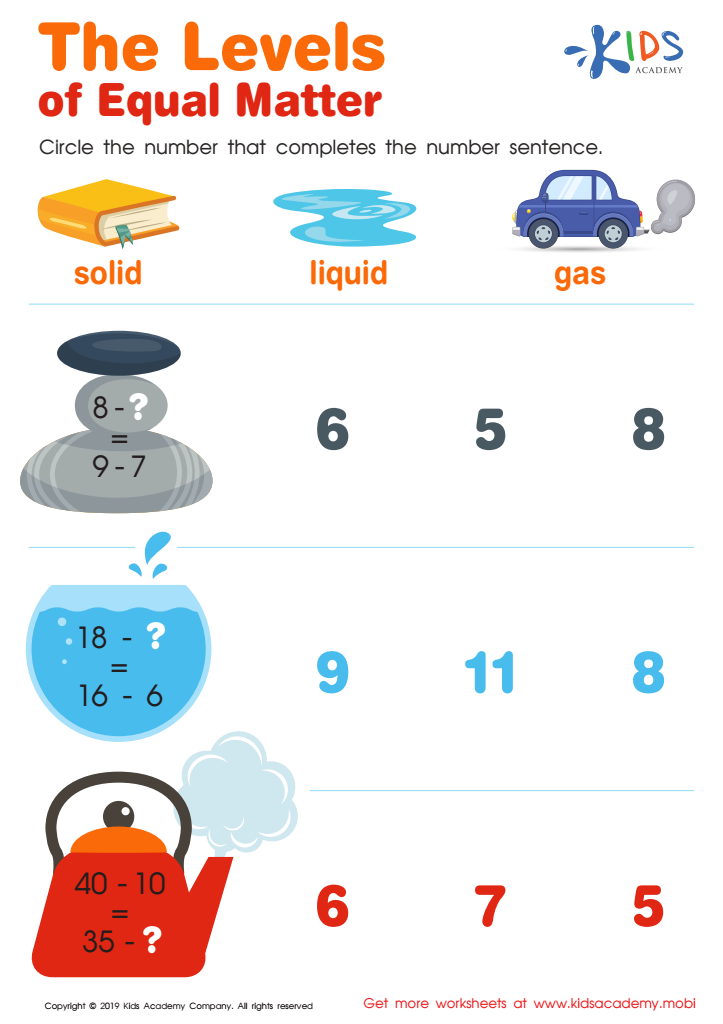

The Levels of Equal Matter Worksheet
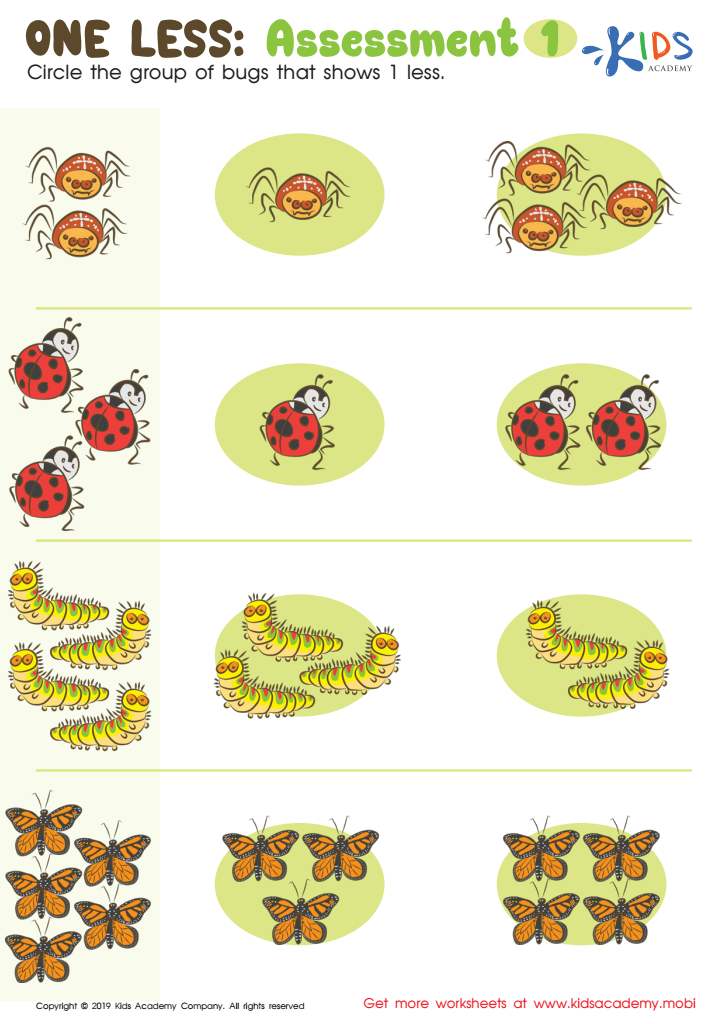

One Less: Assessment 1 Worksheet
Question/Answer
What does the Basic arithmetic practice skill mean when it comes to Kindergarten Sight Words learning?
Basic arithmetic practice in the context of Kindergarten Sight Words learning typically refers to incorporating simple math concepts, such as counting, addition, or subtraction, into activities designed to help children recognize and read sight words. It combines early numeracy skills with literacy development, making learning more engaging and multi-dimensional for young learners.
Why is the Basic arithmetic practice skill important for Kindergarten students?
Basic arithmetic practice is crucial for Kindergarten students because it lays the foundation for their future mathematical learning. It helps develop critical thinking, problem-solving skills, and the understanding of mathematical concepts. Early exposure to arithmetic encourages a positive attitude towards math, enhances cognitive development, and supports academic success in subsequent years by building confidence and competence in handling numbers.
What are some effective activities to train students’ Basic arithmetic practice skill when teaching them about Sight Words?
Effective activities to train students' basic arithmetic skills while teaching them about Sight Words include creating math word problems using sight words, playing sight word bingo with numbers, using flashcards that combine sight words and arithmetic operations, and incorporating interactive games that require solving arithmetic problems to uncover or match sight words.
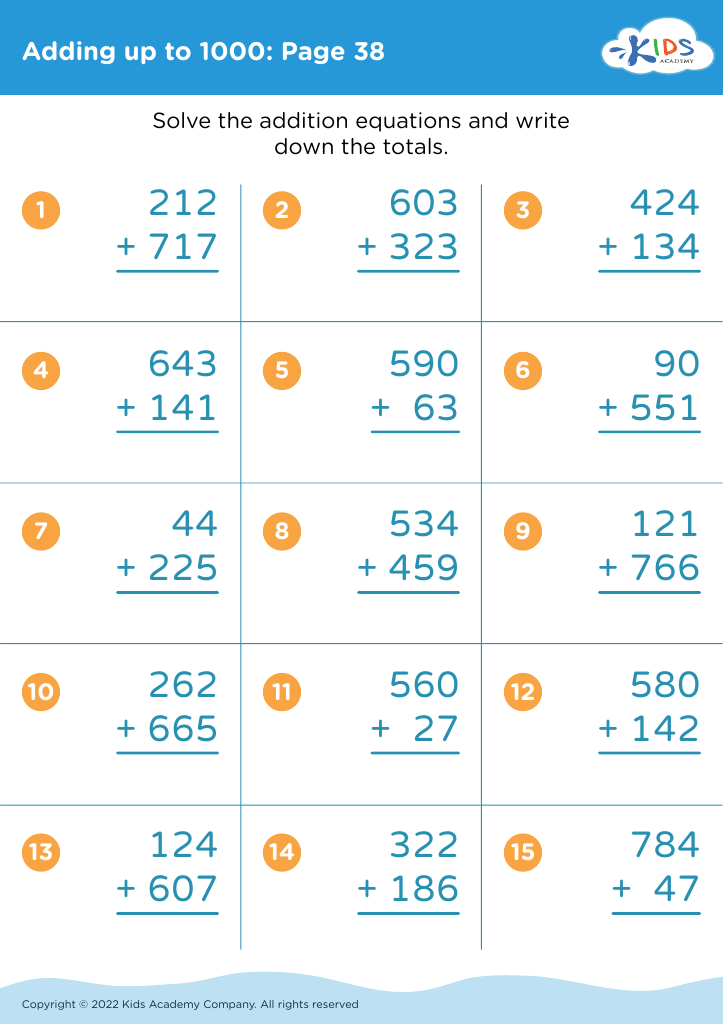
 Assign to My Students
Assign to My Students
